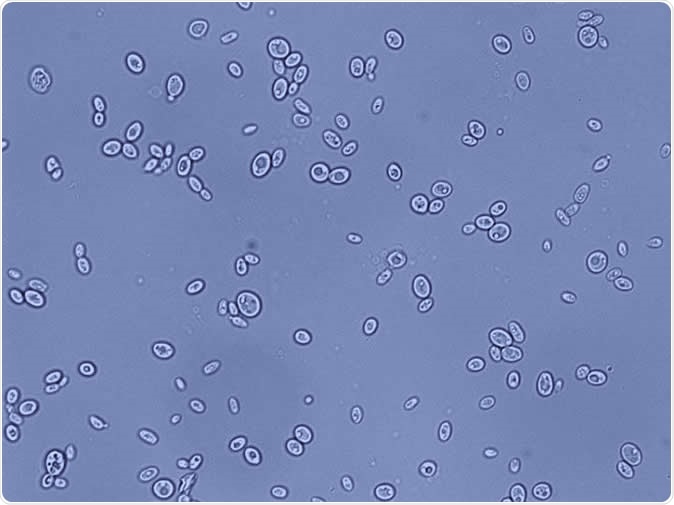Doctors were left baffled as a woman's urine had high levels of alcohol without drinking.
A 61-year-old woman was set for a liver transplant but was denied due to a high level of alcohol in her system. Her urine contained alcohol, which is unlikely unless someone has consumed large amounts of it.
The woman, who was admitted at the University of Pittsburgh Medical Presbyterian Hospital, had been on the liver transplant waitlist due to her diabetes and poorly controlled diabetes. Doctors encouraged the woman to seek treatment for her alcohol abuse since urine tests show the presence of alcohol.
Denied liver transplant
Doctors have suspected that the woman is an alcoholic since she had cirrhosis, and her laboratory work revealed high alcohol levels in her urine. The medical team was puzzled when the patient continued to insist that she was sober.
Further, the clinicians found that her plasma test results for ethanol and urine test results for ethyl sulfate and ethyl glucuronide, which are ethanol metabolites, were negative. The patient manifests no symptoms of alcohol intoxication.
"These findings led us to test whether yeast colonizing in the bladder could ferment sugar to produce ethanol," the researchers wrote on the case report.
To finally determine the cause of the alcohol content in her urine, the doctors tested to determine if the yeast that colonizes her bladder can ferment sugar to produce ethanol.
Further examinations revealed that she had high levels of Candida glabrata, a type of yeast that is naturally found in the human body, accumulated in the bladder when the patient ingested sugar. This type of yeast is akin to Saccharomyces cerevisiae, a type of fungus called brewer's yeast due to its use by people who make beer, by converting carbohydrates in grains into alcohol.

Candida glabrata is a species of haploid yeast of the genus Candida. C. glabrata is generally a commensal of human mucosal tissues, but in today's era of wider human immunodeficiency from various causes (for example, therapeutic immunomodulation, longer survival with various comorbidities such as diabetes, and HIV infection), C. glabrata is often the second or third most common cause of candidiasis as an opportunistic pathogen. Infections caused by C. glabrata can affect the urogenital tract or even cause systemic infections by entrance of the fungal cells in the bloodstream (Candidemia), especially prevalent in immunocompromised patients. Image Credit: Ewa Ksiezopolska & Toni Gabaldon, CRG.
The team concluded that the patient's yeast colony ferments sugar in her urine, since she had poorly controlled diabetes, into ethanol. Her case was the first form of auto-brewery syndrome.
She has a condition called a urinary auto-brewery syndrome, a condition wherein the bladder produces alcohol and is excreted in the urine.
The doctors described her case on the journal Annals of Internal Medicine.
What is urinary auto-brewery syndrome?
Auto-brewery syndrome is a rare condition but mostly occurs in the gastrointestinal tract. It happens when intoxicating levels of ethanol are produced in the digestive system.
The current case, which is the first one ever reported, is caused by yeast in the bladder, which ferments sugar in urine to produce alcohol.
In the woman's case, her poorly controlled diabetes has caused high sugar levels in the urine. However, the yeast fermentation occurring in the bladder had been taxing on her liver for long periods, forcing it to try to eliminate it from the body every time she consumes certain foods.
The doctors have prescribed antifungals to treat her condition, noting that it's easy to overlook signals of an underlying condition. After she has been treated for the condition, she was reconsidered for liver transplantation.
"The experience we describe here of two liver transplant teams at different institutions demonstrates how easy it is to overlook signals that urinary auto-brewery syndrome may be present," the doctors said.
"Clinicians must be diligent about paying close attention to medical record documentation and laboratory results and should always investigate in the event of incongruences," they added.
The researchers also noted that while studying the patient's case, there had been other similar cases wherein ethanol was detected in their urine samples. However, these cases were seen in one postmortem case and in just experiments conducted in vitro.
Journal reference:
Kruckenberg, K., DiMartini, A., Rymer, J.Pasculle, W., and Tamama, K. (2020). Urinary Auto-brewery Syndrome: A Case Report. Annals of Internal Medicine. https://annals.org/aim/article-abstract/2761824/urinary-auto-brewery-syndrome-case-report